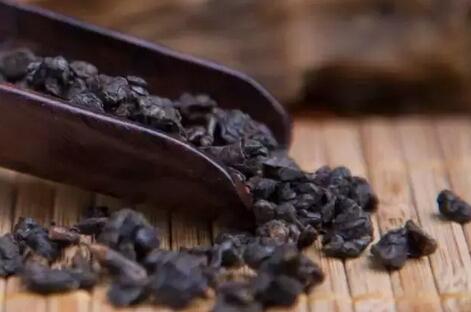1. Not Before Meals
Drinking a small amount of tea before or during a meal is generally fine, but consuming large quantities or overly strong tea can interfere with the absorption of many essential minerals (such as calcium) and trace elements (such as iron and zinc). It's especially important to avoid drinking tea while consuming milk or other dairy products. The theophylline and tannic acid in tea can bind with the calcium in dairy, forming insoluble calcium salts that are excreted from the body, significantly reducing the nutritional value of the dairy.

2. Not Before Sleep
Beginner tea drinkers should pay special attention to this point. Many people find it difficult to fall asleep after drinking tea before bed, which can severely affect their energy levels the next day. Those with neurasthenia or insomnia should be particularly cautious.
3. Not After Alcohol
After drinking alcohol, ethanol enters the bloodstream through the gastrointestinal tract and is converted into acetaldehyde in the liver. Acetaldehyde is then transformed into acetic acid, which breaks down into carbon dioxide and water and is excreted. Drinking tea after alcohol can cause the theophylline in tea to rapidly stimulate the kidneys, promoting diuresis and leading to the premature entry of undigested acetaldehyde into the kidneys. Acetaldehyde is highly irritating to the kidneys and can impair renal function. Therefore, people who frequently drink strong tea after alcohol are more prone to kidney disease. Additionally, ethanol in alcohol strongly stimulates the cardiovascular system, and tea also excites the heart. The combination of the two can amplify the stimulation to the heart, posing even greater risks for individuals with heart conditions.

4. Not Newly Harvested Tea
Newly harvested tea refers to tea leaves that have been picked less than a month ago. These leaves contain substances that can adversely affect health, such as polyphenols, alcohols, and aldehydes, which have not been fully oxidized. Drinking new tea for an extended period may lead to discomfort, including diarrhea and bloating.
5. Not Strong Tea
Strong tea can excessively heighten the body's "excitability," negatively impacting the cardiovascular and nervous systems. Individuals with cardiovascular diseases may experience tachycardia or arrhythmias after drinking strong tea, which can cause their condition to fluctuate.
6. Not Overnight Tea
Tea that has been left overnight is prone to pathogenic contamination, and its complex components can undergo changes. Drinking overnight tea may lead to gastrointestinal issues.
7. Not Using Tea to Take Medicine
Some people, especially tea enthusiasts, may choose to take their medication with tea. However, the tannins in tea can bind with drugs, forming precipitates that alter the medication's properties, hinder absorption, and reduce efficacy—commonly referred to as "tea neutralizing medicine." Therefore, medication should always be taken with plain water.